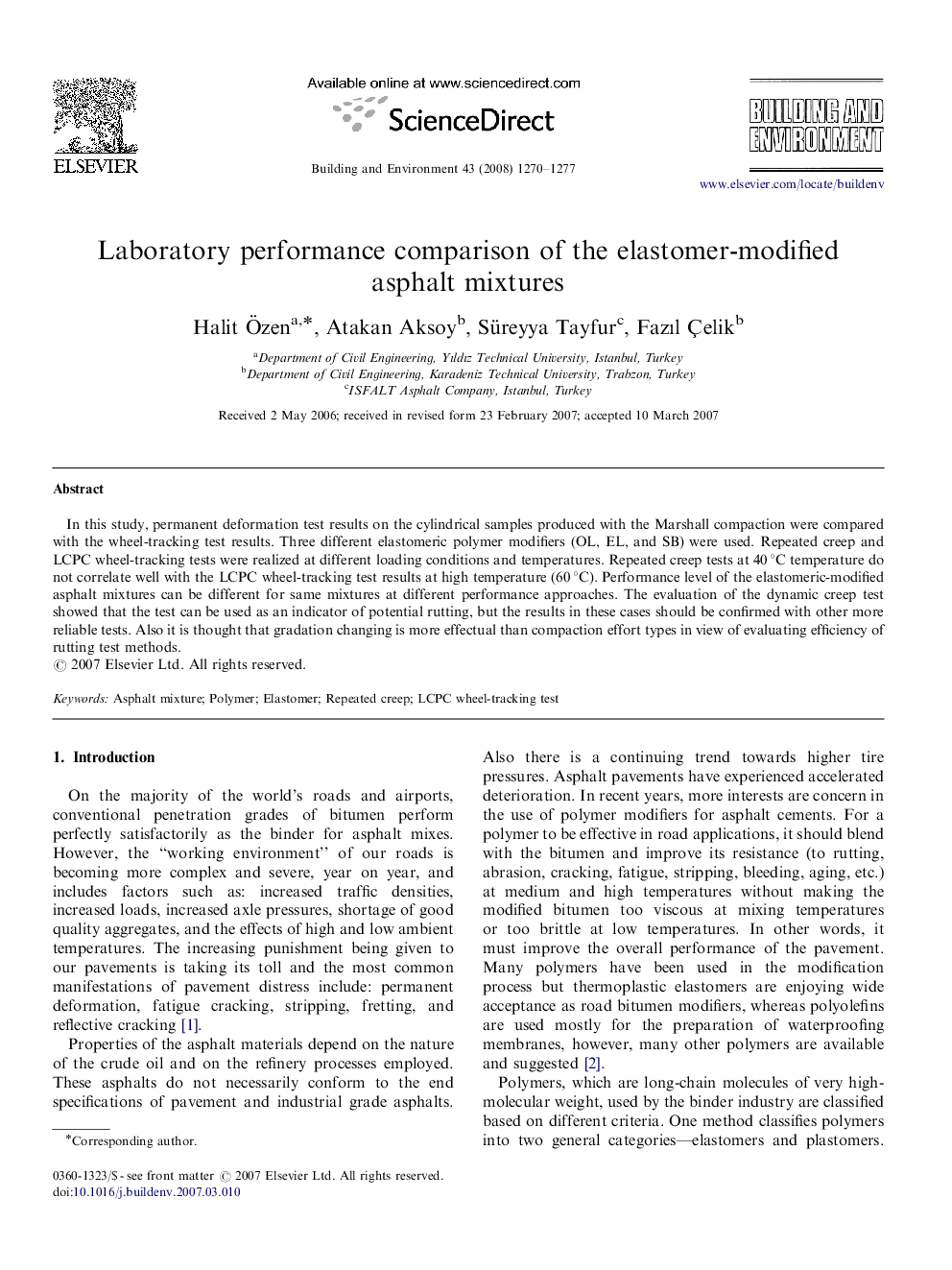| Article ID | Journal | Published Year | Pages | File Type |
|---|---|---|---|---|
| 249776 | Building and Environment | 2008 | 8 Pages |
In this study, permanent deformation test results on the cylindrical samples produced with the Marshall compaction were compared with the wheel-tracking test results. Three different elastomeric polymer modifiers (OL, EL, and SB) were used. Repeated creep and LCPC wheel-tracking tests were realized at different loading conditions and temperatures. Repeated creep tests at 40 °C temperature do not correlate well with the LCPC wheel-tracking test results at high temperature (60 °C). Performance level of the elastomeric-modified asphalt mixtures can be different for same mixtures at different performance approaches. The evaluation of the dynamic creep test showed that the test can be used as an indicator of potential rutting, but the results in these cases should be confirmed with other more reliable tests. Also it is thought that gradation changing is more effectual than compaction effort types in view of evaluating efficiency of rutting test methods.
